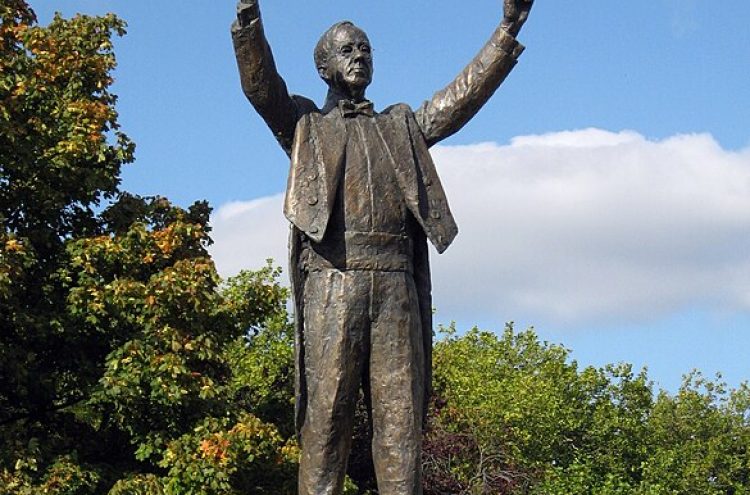
Gustav Holtz, The Planets and Beyond
Wednesday 2 October 2024 at 2.00 pm at the Lowther Pavilion. Guests may attend the lecture – £10 pp (pay on door)
Lecturer: Roger Askew
 This will be Roger Askew’s first visit to The Arts Society Fylde. Roger was a chorister at Wells Cathedral School and a choral scholar at Magdalen College, Oxford, where he graduated with an honours degree in English. He combined a teaching career with professional singing in London, and after obtaining a further degree in Music became Director of Music at Daniel Stewart’s and Melville College in Edinburgh. After retiring in 2003 he returned to the south of England. He is President Emeritus of The Stoke Poges Society.
This will be Roger Askew’s first visit to The Arts Society Fylde. Roger was a chorister at Wells Cathedral School and a choral scholar at Magdalen College, Oxford, where he graduated with an honours degree in English. He combined a teaching career with professional singing in London, and after obtaining a further degree in Music became Director of Music at Daniel Stewart’s and Melville College in Edinburgh. After retiring in 2003 he returned to the south of England. He is President Emeritus of The Stoke Poges Society.
The Lecture
This lecture is in celebration of the 150th Anniversary of the birth in 1874 of Gustav Holst. The Planets by Gustav Holst is one of the most popular and most recorded work in English music. Yet, apart from the tunes for the hymn I Vow to Thee, My Country and the carol In the Bleak Midwinter, most of Holst’s other music is neglected, unjustly so. Holst was an unconventional man who led something of a double life. He was a vegetarian and spent most of his working life as Director of Music in a girls’ school, but he embraced Hindu philosophy and taught himself Sanskrit. He believed that music should be available for everyone and was appointed conductor of a Socialist choir and Director of Music in Morley College, an institution set up for the educational benefit of working men and women. He championed the amateur musician and famously said, “If something is worth doing, it is worth doing badly”. In fact he was a talented conductor and produced performances of real quality.
After the success of The Planets, first performed in 1918, he never wrote a similar orchestral work. He was also working at a time when musicians were beginning to wake up to the huge wealth of English folk music, and many of his compositions are imbued with that folk-song quality which gives them great charm. This lecture will examine Holst’s life, the background to The Planets and will explore many of his other works, including his ‘Oriental’ suite Beni Mora which was inspired by hearing a flute-player in Algiers, his choral masterpiece The Hymn of Jesus and the settings of the Rig Veda, some of the most important Hindu texts for which he provided his own translations. His so-called serious orchestral works do not always follow convention. For example, his concerto for oboe and flute suddenly breaks into a nursery rhyme. Gustav Holst was a true original and not fully understood in his own time. It will be a surprising and revealing lecture, which is richly illustrated with musical examples.
Caption: Statue of Holst at his birthplace, Cheltenham. By Jongleur100 – Own work, (Public Domain)








